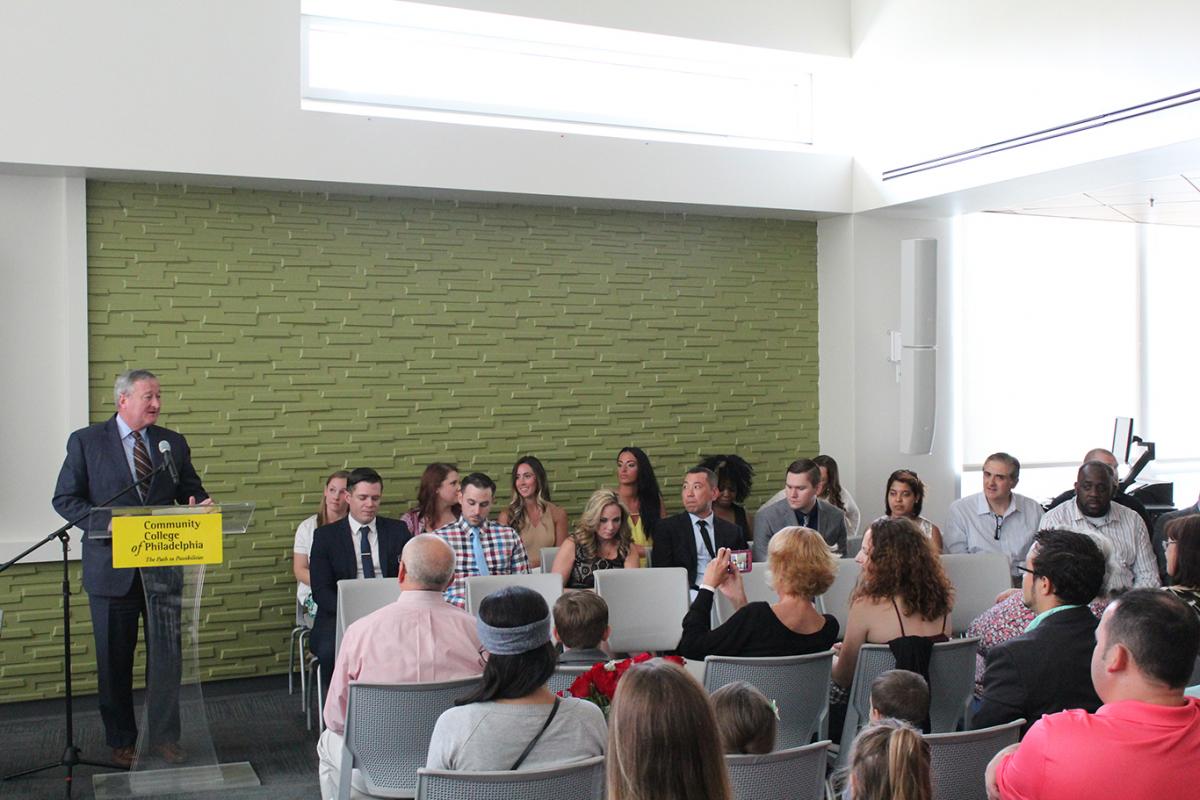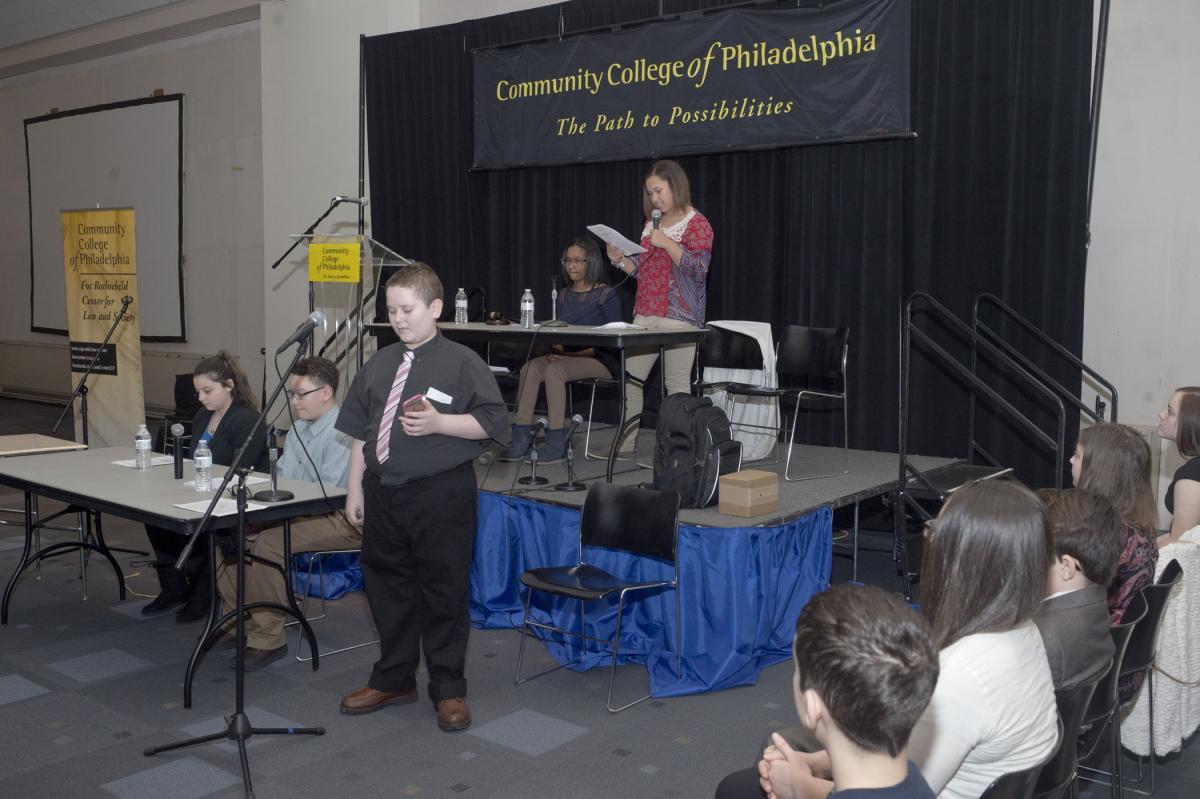Community college athletics are not just about getting the next big win. Athletes do play for the love of the game, but Rogers Glipsy, athletic director at Community College of Philadelphia, says the soft skills and useful life lessons drawn from sports enrich the student experience and position players to compete in life.
Community College of Philadelphia, says the soft skills and useful life lessons drawn from sports enrich the student experience and position players to compete in life.
The strategies learned in competition provide a foundation for fostering lifelong success and that is where the real victory lies.
Learning from Adversity
Rafiq Johnson, a 6’5” starting forward for the Colonials’ men’s basketball team is confident that the Colonials, who were crowned Eastern Pennsylvania Athletic Conference champions and are headed to the National Junior College Athletic Association (NJCAA) Division III, Region XIX playoffs for the second consecutive year, can repeat last season’s success.
The team holds a 20-5 record going into its final regular season game against Eastern University Feb. 15. Johnson believes the Colonials can duplicate the magical 2014-2015 season, when Coach Joe Rome’s 25-2 squad was ranked as high as second in the nation and advanced to the national championship in its first year of NJCAA playoff eligibility.
Johnson, a member of NJCAA Div. III championship all-tournament team, was a key contributor to last season’s success. So imagine his disappointment when a class scheduling snafu caused him to become ineligible for the first part of the season.
“I was devastated,” said Johnson, who was reinstated to the team in January. “I had so much recent success and felt obligated to help the school. But I supported my team (while ineligible) and made sure I buckled down.”
The buckle-down strategies of discipline and time management, learned at the College, have helped him on the court and off.
A Business Administration major, Johnson trained as a teller at Citizens Bank and takes a full course load while squeezing in games and practice. College is teaching him how to show up, and how to be a winner.
“Once I got to college, I learned discipline,” Johnson said. “You have to be on time. Going to away games, you have to dress a certain way and behave a certain way, so when I go out now, I dress appropriately. On the court, you have to use your head and be focused; I try to do the same thing in the classroom. Teamwork is the most important of all. My friends are into what I’m into with similar goals, and I’m learning as a teammate how valuable that can be.”
Rallying to Build Character
For Koraly Adames, sports have always served as a stress reliever, a way to balance her full academic course loads. So when the College recruited her for the club-level women’s tennis
team, the high school softball player thought, why not try something new? “I’m an athlete and I learn quickly,” she said.
Adames considered herself a “decent” tennis player; then she played two matches and lost them both by large margins. During the long rides home, Coach Evan Beilin shared conversations with Adames and teammate Noyra Torres about learning from defeat and appreciating the rewards of competition.
“It’s frustrating to lose, but we are learning about what it means to be a competitive team, “said Beilin, whose team went winless in the two matches it played. “We talk about commitment and showing up every day and understanding the value of setback and loss.”
Even in defeat, Adames learned that preparation never stops, just as it doesn’t in real life. You always strive for improvement.
Tennis “has taught me to never give up,” said Adames, a biology major whose goal is to become a pediatrician. “You’re going to fold but you have to get back up and keep going. So what, you’re the worst player on the team? You just keep going to practices. It’s the same way in school. I don’t like getting bad grades, so I’m always in the library getting the grades that I want. You always want to make the best of it, you know?”
Setting Precedent By Persevering
Fielding a women’s team sometimes presented a challenge for Coach Antowine Graham. But this season, despite their youth, inexperience and 1-15 record this season, the Colonials are honing their skills and laying a foundation for the future.
“We have young women who have never played before — it’s hard to make a basketball player within a couple of months,” Graham said. “But they don’t quit. They give you 100 percent all the time.”
The all-freshman squad realized the value of teamwork in December, when they traveled to Nanticoke, PA, and notched their first victory against Luzerne County Community College. “Everybody did their part, and it was so cool because we could see they were definitely learning. All the running and the drills we do in practice — they were able to see how it paid off,” Graham said.
Athletics has given them confidence, which they can transfer from the court to the classroom and beyond, Graham says.



 Community College of Philadelphia, says the soft skills and useful life lessons drawn from sports enrich the student experience and position players to compete in life.
Community College of Philadelphia, says the soft skills and useful life lessons drawn from sports enrich the student experience and position players to compete in life.